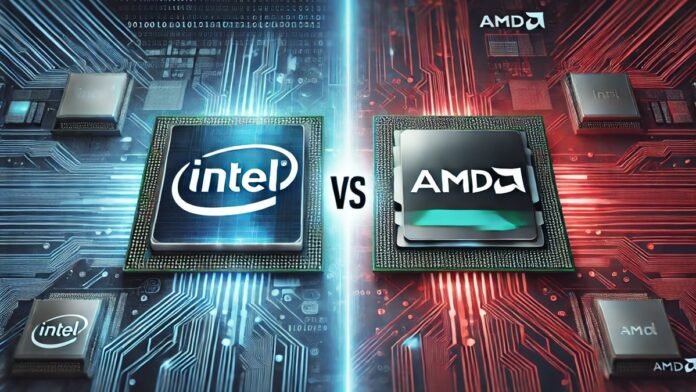When it comes to computing powerhouses, few rivalries can boast as aged and strong competition as that between AMD and Intel processors. The two have taken the CPU supremacy for over 40 years with technological advancements that have made their way into both of these companies’ following fan bases. But where both are fighting against each other, which one really takes the title? Let’s get really into the nitty-gritty so that you can find out which processor could be best suited to your requirements.
Performance and Power Efficiency
Intel: The Established Champion
When it comes to the powerhouses of computing, few rivalries can boast as long and fierce a competition as between AMD and Intel processors. To the extent in which these two have contended in CPU supremacy over 40 years, their technology advancement must have taken both these companies and their following fans. But where both fight against each other, which one winners in reality? Let’s delve into the real nitty-gritty so you can find out which processor could be the most suitable for your specific needs.

AMD: The Challenger’s Rise
AMD is almost entirely an underdog and much nearer to the crowd it once pitched at. However, the processor nothing can really take away from the fact that its Ryzen series has gradually revolutionized performance. Known for multithreaded performance powerhouses, AMD CPUs usually deliver more cores/threads and, thus compared to Intel offers better prices as well. The result is performance concerning multitasking, content creation, and workstation applications. Moreover, AMD is often viewed as having more power-efficient processors in potential later-life savings, thermal management, and sometimes lower operating costs.

Innovation and Technology
Intel: Innovator Extraordinaire
AMD is almost entirely an underdog and much nearer to the crowd it once pitched at. However, the processor nothing can take away from the fact that its Ryzen series has gradually revolutionized performance. AMD CPUs usually offer more cores/threads and, thus, compared to Intel, offer better prices as well. The result is, therefore, the performance about multitasking, content creation, and workstation applications. And, sometimes, even lower operating costs. Such things bring AMD as very much preferred considering future potential savings through thermal and power management and often reduced lifetime costs.
AMD: Architectural Brilliance
AMD, on the contrary, has made waves with its succulent Zen architecture, which has proved rejuvenating for the market. The Zen architecture of Ryzen processors is designed-for-multitasking and efficient operation without sacrificing performance. Enthusiasts and builders have also appreciated AMD’s backward compatibility with its AM4 socket and support for PCIe 4.0.
Pricing and Value Proposition
Intel: Premium Performance at a Price
Often known to command the extra price premium for strength and brand value, Intel’s processors have been among the industry’s most expensive. For the customer looking for the absolute best in performance and reliability-even in those areas where Intel’s optimizations really shine-this additional cost might be quite justifiable.
AMD: Performance Bang for Your Buck
AMD’s Ryzen processors are usually quite competitive in terms of price-performance, matching the offerings of Intel at significantly lower costs. Whether they are used in gaming, content creation, or small business solutions, AMD processors seem to win the competition by being significantly more affordable options to almost everyone in today’s market.
Conclusion: Which Should You Choose?
Ultimately, the choice between AMD and Intel processors boils down to your specific needs and preferences:
- Choose Intel if you prioritize single-threaded performance, stability in corporate environments, and are willing to invest in premium hardware.
- Opt for AMD if you value multitasking power, efficiency, and want more cores and threads for tasks like content creation, streaming, or gaming on a budget.
Both AMD and Intel continually innovate and evolve, pushing the boundaries of what’s possible in processor technology. Whichever you choose, rest assured that both brands offer impressive options that cater to a wide range of computing needs, ensuring that consumers have more choice and power than ever before in selecting the perfect CPU for their next build or upgrade.




I’ve been using AMD processors for the past few years, and the value they offer for multitasking and gaming is incredible—especially with the Ryzen series. Has anyone tried both brands recently and noticed a big difference in day-to-day performance?
Great article! I’ve always wondered which is better for gaming and productivity. Your side-by-side comparison of AMD and Intel made it super easy to understand. Very informative!
Really enjoyed this breakdown of AMD vs Intel—it was balanced and easy to follow. I liked how you highlighted real-world performance instead of just focusing on specs. Your explanation of multitasking vs gaming strengths made everything clearer. Properly written and genuinely helpful!